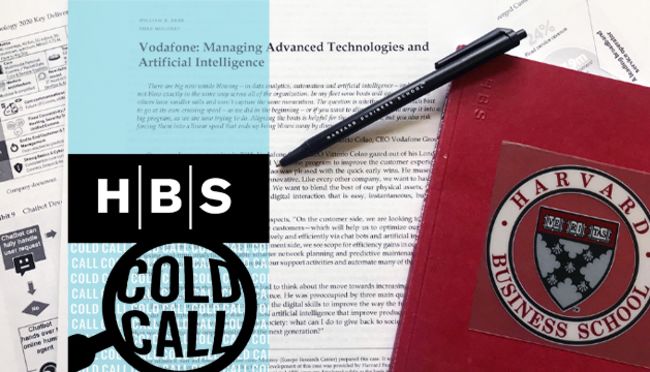Performance Productivity →
→

- 28 Aug 2023
- Research & Ideas
The Clock Is Ticking: 3 Ways to Manage Your Time Better
Life is short. Are you using your time wisely? Leslie Perlow, Arthur Brooks, and DJ DiDonna offer time management advice to help you work smarter and live happier.

- 08 Aug 2023
- Research & Ideas
The Rise of Employee Analytics: Productivity Dream or Micromanagement Nightmare?
"People analytics"—using employee data to make management decisions—could soon transform the workplace and hiring, but implementation will be critical, says Jeffrey Polzer. After all, do managers really need to know about employees' every keystroke?

- 05 Jun 2023
- What Do You Think?
Is the Anxious Achiever a Post-Pandemic Relic?
Achievement has been a salve for self-doubt for many generations. But many of the oldest members of Gen Z, who came of age amid COVID-19, think differently about the value of work. Will they forge a new leadership style? wonders James Heskett. Open for comment; 0 Comments.

- 27 Feb 2023
- Research & Ideas
How One Late Employee Can Hurt Your Business: Data from 25 Million Timecards
Employees who clock in a few minutes late—or not at all—often dampen sales and productivity, says a study of 100,000 workers by Ananth Raman and Caleb Kwon. What can managers do to address chronic tardiness and absenteeism?

- 01 Feb 2023
- What Do You Think?
Will Hybrid Work Strategies Pull Down Long-Term Performance?
Many academics consider remote and hybrid work the future, but some business leaders are pushing back. Can colleagues working from anywhere still create the special glue that bonds teams together? asks James Heskett. Open for comment; 0 Comments.

- 22 Oct 2021
- Research & Ideas
Want Hybrid Work to Succeed? Trust, Don’t Track, Employees
Many companies want employees back at desks, but workers want more flexibility than ever. Tsedal Neeley offers three rules for senior managers trying to forge a new hybrid path. Open for comment; 0 Comments.

- 08 Oct 2020
- Research & Ideas
Keep Your Weary Workers Engaged and Motivated
Humans are motivated by four drives: acquire, bond, comprehend, and defend. Boris Groysberg and Robin Abrahams discuss how managers can use all four to keep employees engaged. Open for comment; 0 Comments.

- 24 Aug 2020
- Research & Ideas
How Much Will Remote Work Continue After the Pandemic?
A new survey suggests that at least 16 percent of employees will remain at-home workers long after COVID-19 recedes, report researchers Christopher Stanton, Zoe Cullen, and Michael Luca. Open for comment; 0 Comments.

- 18 May 2020
- Working Paper Summaries
No Line Left Behind: Assortative Matching Inside the Firm
This paper studies how buyer relationships influence suppliers' internal organization of labor. The results emphasize that suppliers to the global market, when they are beholden to a small set of powerful buyers, may be driven to allocate managerial skill to service these relationships, even at the expense of productivity.

- 25 Feb 2020
- Research & Ideas
For Migrant Workers, Homesickness Can Reduce Productivity
Workers in the global economy increasingly perform their jobs far away from home. It turns out, says Prithwiraj Choudhury, that homesickness is a significant barrier to their productivity. Here's what employers can do. Open for comment; 0 Comments.

- 31 Jul 2019
- Research & Ideas
Distressed Employees? Try Resilience Training
Depressed employees are up to five times more likely to experience work-related problems than employees with chronic physical illnesses. So why aren't employers helping them? asks Ashley Whillans. Open for comment; 0 Comments.

- 07 Jul 2019
- HBS Case
Walmart's Workforce of the Future
A case study by William Kerr explores Walmart's plans for future workforce makeup and training, and its search for opportunities from digital infrastructure and automation. Open for comment; 0 Comments.
- 01 Jul 2019
- What Do You Think?
Are Super Stretch Goals Only for the Very Young?
SUMMING UP: Super stretch goals can produce audacious results, but they are best left to companies agile enough to execute then, readers say. Open for comment; 0 Comments.

- 02 Apr 2019
- Working Paper Summaries
Managerial Quality and Productivity Dynamics
Which managerial skills, traits, and practices matter most for productivity? This study of a large garment firm in India analyzes the integration of features of managerial quality into a production process characterized by learning by doing.

- 12 Nov 2018
- Research & Ideas
'Always On' Isn't Always Best for Team Decision-Making
Is it possible for teams to communicate too frequently? Research by Ethan Bernstein and colleagues suggests that groups that meet less often may be better at problem-solving. Open for comment; 0 Comments.

- 25 Oct 2018
- Cold Call Podcast
Vodafone’s Innovative Approach to Advanced Technologies
William Kerr discusses how telecom giant Vodafone incorporated big data, automation, and artificial intelligence to improve productivity while ensuring new opportunities were created for the next generation of workers. Open for comment; 0 Comments.

- 28 Aug 2018
- Working Paper Summaries
Homesick or Home Run? Distance from Hometown and Employee Performance: A Natural Experiment from India
In the short and long term, distance from one’s hometown has a different effect on individual work performance. First-year performance ratings tend to be high the farther employees work from their hometown. Three years later, however, longer travel times are associated with lower ratings, with implications for managers.

- 23 Jul 2018
- Research & Ideas
The Open Office Revolution Has Gone Too Far
When Ethan Bernstein used wearable technology to track workers around their open office, he discovered many who were trying to avoid collaboration rather than engage in it. Open for comment; 0 Comments.

- 28 Feb 2018
- Sharpening Your Skills
Master the Team Meeting
Business meetings aren't always enjoyable, but they are key to moving a team forward. Julia Austin offers tips for making the most of your meeting time. Open for comment; 0 Comments.

Employees Out Sick? Inside One Company's Creative Approach to Staying Productive
Regular absenteeism can hobble output and even bring down a business. But fostering a collaborative culture that brings managers together can help companies weather surges of sick days and no-shows. Research by Jorge Tamayo shows how.